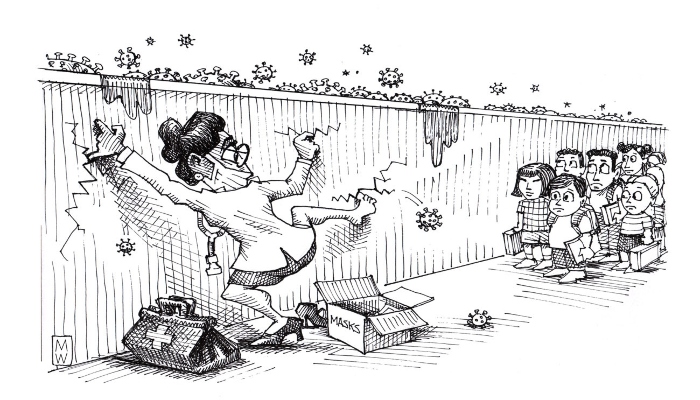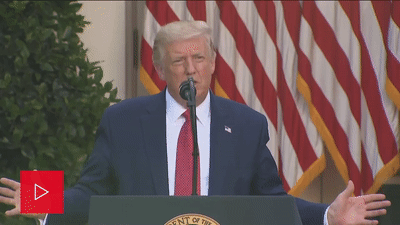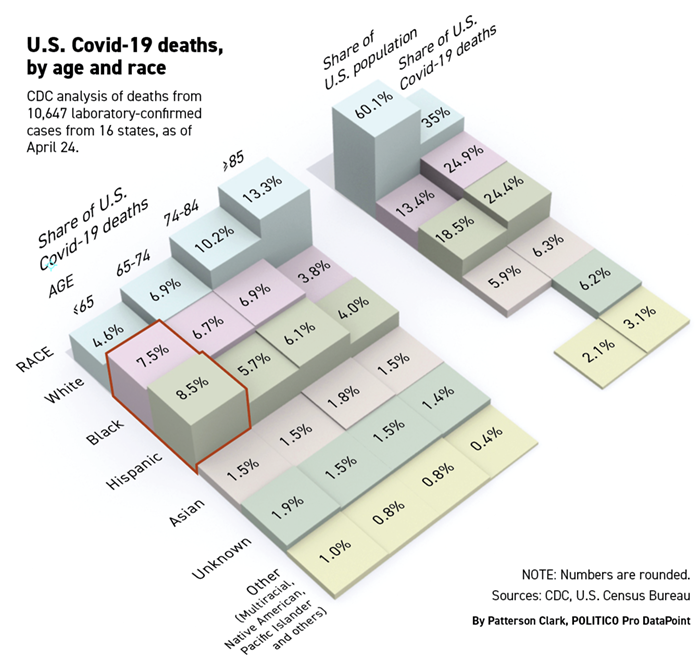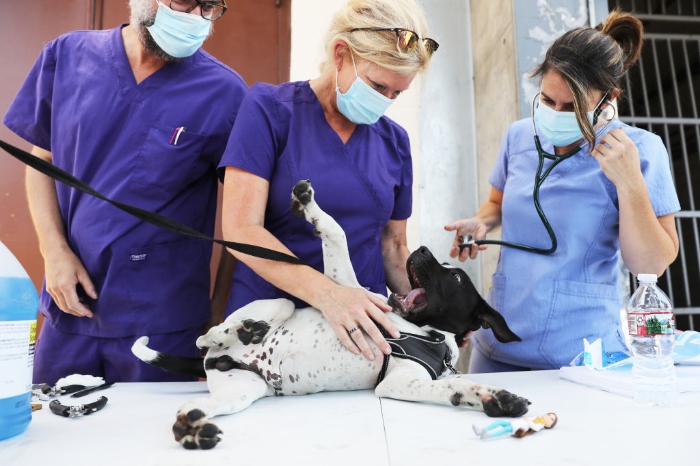
|
STATES OF DISARRAY — Leaving the nation’s coronavirus response to individual states has had catastrophic consequences for America, erasing nearly all the gains the nation made in March and April.
Yes, fewer people are dying this time around, and no, governors aren't scrambling for ventilators. But the surging infections, growing wait-times for test results, shortages of protective gear, overwhelmed hospitals and hapless school districts belie any sense of progress and leave the United States far behind countries like Germany or Italy where strong federal action helped keep the curve flat.
In an alternate universe, a national strategy for the U.S. would have involved a coordinated national testing program; a nationwide strategy on protective gear, testing supplies and medications, and consistent, streamlined messaging on things like masks and social distancing — starting in March.
But here we are, mid-summer, and things are going backwards.
“We shut down the country for three months and we could have used that time for all kinds of planning and preparing, and we did not use it at all,” said David Eisenman, the director of the UCLA Center for Public Health and Disasters.
Eisenman said that he fears that we are, in some ways, worse off than we were in April because millions of people now believe that lockdowns are futile.
"People are tired and they don't see the benefit of going back into lock down," he said.
State officials and public health experts say the lack of a federal plan has helped turn the isolated outbreaks in the South and Southwest into a national calamity ravaging the Heartland, Midwest and Pacific coast.
— In Alabama, about 200 contact tracers are trying to investigate the more than 1,000 new infections each day.
— In Arkansas, shortages of the chemicals needed to process Covid-19 tests have become so severe that the state is weighing whether to abandon its requirement that people needing elective surgeries first get tested.
— California is back to rationing tests due to limited supply.
— In Oregon, new daily infections are triple what they were a month ago, overwhelming the state’s testing capacity.
Rep. Greg Stanton (D-Ariz.), who represents hard-hit Maricopa County, expressed similar frustration. “How can you have national success without having a national plan,” he said. “How do you fight the worst pandemic in 100 years without a coordinated strategy?”
Welcome to POLITICO Nightly: Coronavirus Special Edition. Renu will be back Wednesday, but she still wants you to send along your thoughts, tips and questions. Drop us a line. Reach out: rrayasam@politico.com or on Twitter at @renurayasam.
A message from PhRMA:
America’s biopharmaceutical companies are sharing manufacturing capabilities with each other so that once a treatment or vaccine is ready, they can get it to millions of people fast. And there’s no slowing down. America’s biopharmaceutical companies will continue working day and night until they beat coronavirus. More.
| FROM THE EDUCATION DESK |
INTERNATIONAL STUDENTS STAY, FOR NOW — The Trump administration today halted its plans to deport international college students who only use online courses this fall. Education reporter Juan Perez Jr. chatted with the Nightly about why the administration walked back its plans, and what this means for international students in the U.S.
Why did the Trump administration cave on this?
In a word: Pressure. We don’t know the exact circumstances of any negotiations between Harvard, MIT and the government. But we do know this planned policy invited ire from big players in the business community. Facebook, Google, Microsoft, and the U.S. Chamber of Commerce are just some of the corporate titans that joined colleges, students, labor unions, and other interest groups to support the schools’ lawsuit. Plus, don’t forget the pile of separate lawsuits that have been filed to stop this policy. The promise of court battles across the country only stood to intensify calls for the White House to back down.
What does this mean for international students higher education opportunities this fall?
For now, today’s decision means foreign students can stay in the country and remain enrolled at their school if their classes are conducted in an online-only format this fall. It’s not certain what the administration’s next move will be.
What’s the next big issue between the federal government and colleges over reopening?
Schools face a list of simultaneous crises when it comes to reopening. It’s hard to overstate this. Campuses have no shortage of plans for getting back to business, but the coronavirus might have other ideas. Watch institutions in states with ongoing outbreaks, and remember that the traditional college campus is designed for the exchange of ideas — and consequently, pathogens. If schools inside coronavirus hotspots can’t reopen as planned, there’s a cascade of consequences in store for sports, college town businesses and the financial future of higher education itself.

TROUBLE IN THE NURSE’S OFFICE — It’s decision week on school reopening for districts across the country. But while much of the attention has been on students, teachers and parents, one key group has been left out of the national conversation: School nurses, Nightly’s Myah Ward writes.
Used to dealing with recess scrapes, colds, tummy aches and food allergies, these school employees are being thrust onto the front lines of the pandemic. And they’re entering the school year undertrained and often without the proper resources to deal with the complex protocols for schoolhouse virus mitigation.
Following the CDC’s guidelines for reopening schools, a National Association of School Nurses survey revealed that at least 96 percent of those surveyed were equipped with gloves, hand sanitizers and hand soap, and 78 percent had surgical masks before schools closed this spring. But just 28 percent said they had N95 masks and only 23 percent had an isolation room prepared for a student with a suspected contagious illness.
No nurses in some schools: And the problems don’t stop with supplies. Across the U.S., 25 percent of schools don’t employ a school nurse, according to NASN.
“A lot of this is based on district funding, and things like that, which unfortunately tend to be so tied to the proportion of kids and families who are living in poverty,” said Sarah Woulfin, professor of education leadership at The University of Connecticut.
Spotting an outbreak early: School nurses are trained to handle more than individual care, said Laurie Combe, president of NASN. They are best positioned to identify health trends in a student population. And without them, there might not be someone that can identify an outbreak before it’s too late.
School nurses will also have to monitor teachers’ health and handle Covid-19 mitigation efforts like temperature checks. But who will manage the typical health room visits that happen every day? “The students diagnosed with asthma or diabetes or severe food allergies. Or even the student who maybe they were out on the playground and have a fairly severe playground injury,” Combe said. “It’s part of this added workload that will come with Covid-19, potentially, that school systems really need to consider how they’re going to manage.”
GET VIP ACCESS TO AN INTERVIEW WITH KERRY WASHINGTON: Women Rule Editorial Director Anna Palmer will host a conversation with star actress, producer and director Kerry Washington; Dale Ho, director of the ACLU's Voting Rights Project; and Brigitte Amiri, deputy director at the ACLU's Reproductive Freedom Project focused on "The Fight," a documentary that chronicles four cases that the ACLU brought against the Trump administration. Register here for exclusive access to the conversation next week before it's made available to the general public.
|
|






No comments:
Post a Comment
Note: Only a member of this blog may post a comment.